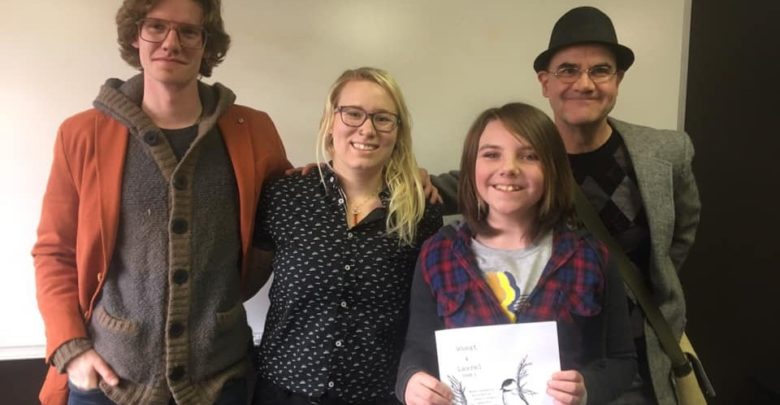Wheat & Laurel opens the door for young rural writers
The journal focuses on giving a platform for those just beginning to nurture a love for writing
 Supplied
SuppliedIn an effort to apply her love for the written word, an Augustana graduate has established a literary journal that provides encouragement, support, and resources for young rural writers in Alberta and Saskatchewan.
Amielle Christopherson is a recent business graduate from Augustana Campus and the creator of Wheat & Laurel, a literary journal that nurtures young rural writers and provides them with paid publication opportunities. Growing up in rural Saskatchewan, Christopherson wished she had a program that fostered her own literary passions and interests. Since its launch in 2018, Wheat & Laurel is doing just that, with an ambitious vision to continue developing young writers.
Christopherson got the idea for Wheat & Laurel during a creative writing class in university. With the help of the Camrose library, Albertan teachers, and the Saskatchewan Writers’ Guild, Christopherson is connecting writers between the ages of 11 and 19 through the literary journal.
“As a young writer it can be very off-putting to see how difficult it is to get your name out there, get paid for it, and to receive any recognition,” Christopherson said. “I want to find a way to encourage them.”
Canada has a wide variety of literary journals and publications such as Grain and Exile, however they mostly cater to older writers and audiences. This can make it complicated and intimidating for younger writers to submit their work and get published.
With Wheat & Laurel, younger writers have the opportunity to be published and attend workshops where they receive feedback on their work. This environment is intended to nourish and develop their skills, while providing them with a community of like-minded individuals.
“Writing can be and often is highly personal, especially when you’re a teen. It is very raw, honest and truthful,” Christopherson said. “It can be very uncomfortable reflecting on your own work and even more uncomfortable sharing it.”
Wheat & Laurel wants teenagers to be comfortable, especially considering how uncomfortable it can be to share your writing.
Although Wheat & Laurel has been getting some recognition and involvement, Christopherson is hoping for more.
“People think that ‘I don’t necessarily want to be a writer when I grow up’. But it’s like joining a club,” Christopherson said. “If you’re joining Girl Guides you don’t have to be a Girl Guide for the rest of your life. It’s just something to strengthen your skills.”
As more people work with Wheat & Laurel, Christopherson hopes to include published authors in their workshops.
Having published authors in the room makes publication seem much more achievable and exposes the youth to different stories. It also teaches them that the road to being published is not always one size fits all.
Christopherson would also like to publish writing in different languages. Considering Western Canada’s diversity, it would give polyglots an opportunity to use those other languages and acknowledge that stories are often handed down or even presented differently in different languages.
In addition to including published authors and linguistic diversity, Christopherson would like to have regular funding so that everyone involved in the journal can be paid. She believes that despite being a smaller writing journal, not paying young artists and authors sets a dangerous precedent for their future. It is important to her that youth know that their work holds worth and that they should be paid.
Christopherson wants people to know that Wheat & Laurel is open to any background, skill level and genre. She wants to create a storytelling community where everyone’s stories are shared and welcomed.




